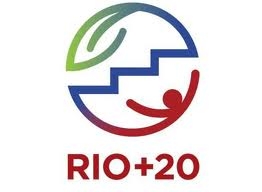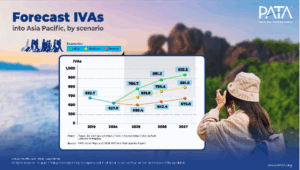World leaders renew commitments to save planet

Rio De Janeiro — High-level officials of nearly every Member State meeting in Rio de Janeiro, Brazil, renewed their commitments to ensuring an “economically, socially and environmentally sustainable future for our planet and for present and future generations”, as the United Nations Conference on Sustainable Development — Rio+20 — closed here on June 22.
A set of time-bound targets to end poverty and hunger while preserving the environment — to be known as the Sustainable Development Goals — was placed on the agenda of the General Assembly when the Conference adopted the outcome document titled “The Future We Want” in the final plenary of the three-day Conference — the largest-ever United Nations gathering in number of participants.
Rio+20 built on the ground-breaking United Nations Conference on Environment and Development (the “Earth Summit”) of 1992, which adopted Agenda 21 and the Rio Principles, and resulted in the conventions on biodiversity, desertification and climate change, as well as other bases of international efforts to effect integrated, sustainable development.
Affirming that poverty eradication was the greatest and most urgent challenge facing the world today, with more than 1 billion people living in extreme want, the document advocates a transition to a “green economy” and outlines a stronger role for women, non-governmental organizations, small-scale food producers, the private sector and the academic, scientific and technological community.
Among other proposals, it recommends the creation of a high-level standing forum on sustainable development to replace the United Nations Commission on Sustainable Development, and the strengthening of the United Nations Environment Programme (UNEP). The wide-ranging text, containing nearly 300 paragraphs, stresses that the Sustainable Development Goals will build on the Millennium Development Goals, the framework for slashing extreme poverty and other global ills in the period 2000‑2015.
Welcoming the document’s adoption as well as the Conference’s extensive outreach to civil society and the private sector, United Nations Secretary-General Ban Ki-moon said that the text provided a firm foundation for multidimensional well-being. “It is now our responsibility to build on it,” he stressed. “The work starts now.” Also urging follow-up action, Conference Secretary-General Sha Zukang expressed confidence that the outcome document “will provide an enduring legacy for this historic Rio+20 Conference”.
General Assembly President Nassir Abdulaziz al-Nasser and President Dilma Rousseff of Brazil, also the Conference President, seconded those calls to action, with the latter hailing the mobilization and inclusion of civil society as major players in implementation.
Prior to the adoption, meanwhile, Heads of State and Government as well as other senior officials continued to present their national development priorities, expressing mixed reactions to the outcome text, as the general debate of the Conference heard from today’s more than 50 final speakers. Overall, over 100 Heads of State and Government addressed the highly anticipated gathering. Delegations from 188 countries and three observer entities were among the 12,000 diplomatic participants. Early estimates put the total participation at close to 46,000, with more than 9,800 civil society participants and some 4,000 international media representatives attending the Conference.
In their reaction to the outcome document, most Government and civil society representatives expressed satisfaction that the text reinvigorated efforts to use resources better for the benefit of current and future generations, while also pointing out areas that they felt were inadequately addressed. Others expressed disappointment at the lack of new commitments.
Many leaders of developing countries urged greater emphasis on the fulfilment of commitments to address poverty and climate change. The Prime Minister of Samoa and leaders of other small island developing States, for example, said that new commitments were not important in light of the dire and imminent threats faced by their nations due to climate change. Rather, immediate action on existing pledges was vital, they emphasized.
Others leaders, including some from industrialized countries, expressed disappointment that the document did not demand reproductive rights. “Women must be empowered to be able to make their own decisions on whether and when to have children,” said the Secretary of State of the United States.
In addition to the consensual outcome declaration, hundreds of voluntary commitments were registered at the Conference, from Governments, business and industry, financial and intergovernmental institutions, the United Nations system, civil society and others. The Rio+20 Secretariat, together with the United Nations Global Compact and the Secretary-General’s Sustainable Energy for All initiative, are creating a registry of those commitments.
So far, the Conference Spokesperson announced today, commitments exceeded totalled over $500 billion, including major funding for transport and sustainable energy. Planting 100 million trees, empowering 5,000 women entrepreneurs in green economy businesses in Africa, and recycling 800,000 tons of PVC per year are among the actions pledged.
In addition, initiatives for sustainable energy, oceans, forests, arable land and many other areas were announced in myriad side events during the Conference. This morning, the Government of Brazil and the United Nations Development Programme (UNDP) announced the creation of the Rio+Centre to facilitate research, knowledge-sharing and international debate on sustainable development, at a ceremony attended by Brazil’s Minister for the Environment and the UNDP Administrator.
In his closing statement, Mr. Ban welcomed the breadth of the initiatives pledged at the Conference. “These huge numbers give a sense of the scale and growth of investment going into sustainable development. Our job now is to create a critical mass — an irresistible momentum,” he said.
Before the Conference concluded its work, the Rapporteurs provided summaries of its four round tables on the theme “Looking at the way forward in implementing the expected outcomes of the Conference”. Reporting on those discussion were, respectively, Kazakhstan’s Minister for Environment Protection, Poland’s Minister for the Environment, Malawi’s Minister for Environment and Uganda’s Minister of State for Environment.














